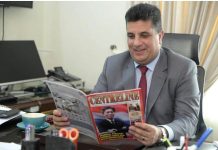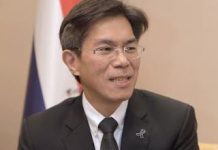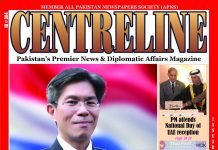DNA
Pakistan Tehreek-e-Insaf’s (PTI) parliamentary leader in the Senate, Barrister Ali Zafar, admitted that the vote of no-confidence — against his party’s founder and then-prime minister Imran Khan — was a constitutional procedure and the government led by PTI was ousted “constitutionally”.
In April 2022, the PTI government was removed via a no-confidence motion moved by the Pakistan Democratic Movement alliance.
The senator’s comments came during the Geo News programme ‘Capital Talk’ when he opposed Khyber Pakhtunkhwa Chief Minister Ali Amin Gandapur who had announced “storming Islamabad to overthrow the government in Centre”.
This is “unconstitutional”, he said.
“There are several constitutional ways of toppling the government and our government, too, was removed constitutionally after a vote of no-confidence,” he said, adding he considers such mechanisms “legal”.
However, Senator Zafar also claimed that the current government can also be overthrown at any time, as the PTI-backed Sunni Ittehad Council’s lawmakers will soon be in majority in the upper and lower house of the Parliament.
The lawmaker was also questioned about the scope of criticising the judiciary in the Constitution. The anchor also highlighted PTI’s harsh stance and use of strong language against Chief Justice Qazi Faez Isa on social media platform X, formerly Twitter, as well as during a presser by the party’s Central Information Secretary Raoof Hasan.
Responding to the question, Senator Zafar said while decisions of the judiciary can be criticised, the judge’s character under the Constitution cannot be critiqued.
A day earlier, Hasan — flanked by other party leaders — demanded that the CJP disassociate himself from the bench hearing case pertaining to a letter by six Islamabad High Court judges, alleging he could not do justice in the matter.
He said that CJP Isa, with regards to the case, is on one side, while the entire judiciary is on the other.
On the other hand, Advisor to Prime Minister on Political Affairs Rana Sanaullah, who was also being interviewed in the programme, said that there are major problems in the judiciary from recruitment and promotion to decisions, while the biggest pressure on the judge is from the bar.

















